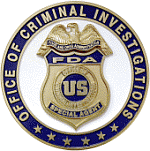March 1, 2016: Principal of Dietary Ingredient Companies Pleads Guilty to Multi-Million Dollar Fraud and Meth Precursor Scheme
|
|
|
|
U.S. Department of Justice Press Release
|
|---|
|
For Immediate Release |
United States Department of Justice
|
|---|
The principal of a series of dietary ingredient companies in New Jersey pleaded guilty today in connection with the sale of methamphetamine precursor chemicals, a separate scheme to defraud purchasers of dietary supplements and money laundering, the Department of Justice announced.
“The Department of Justice has increased its enforcement efforts against unlawful dietary supplements in recent years,” said Principal Deputy Assistant Attorney General Benjamin C. Mizer, head of the Justice Department’s Civil Division. “This case underlines the need for both consumers and the government to be vigilant in investigating what the American public is ingesting in the guise of weight loss or health enhancement supplements.”
David Romeo, 46, of Washington Township, New Jersey, pleaded guilty to a four-count Information charging him with conspiracy to distribute three kilograms or more of meth precursors, money laundering, mail fraud and introduction of misbranded food into interstate commerce with intent to defraud or mislead. As part of his plea agreement, Romeo has agreed to forfeit more than $1.2 million in money derived from his crimes.
In pleading guilty, Romeo admitted that he was a principal of Global Nutrients, Stella Labs and Nutraceuticals, all of which were New Jersey-based entities engaged in the sale of dietary ingredients intended for use in dietary supplements sold to consumers. Starting at least as early as 2003, Romeo directed his employees to use cheaper substitutes in place of the dietary ingredients that had actually been ordered by customers, most of whom were companies engaged in production of dietary supplements. These substitutes were sent in many instances without the customer’s consent or knowledge. As alleged in charging documents, Romeo and his associates referred to the substitution of cheaper ingredients as “SOP,” meaning “standard operating procedure.”
Romeo admitted that, as part of the scheme, his businesses purported to sell a weight-loss ingredient called “hoodia.” Stella Labs and Nutraceuticals represented to consumers that they were selling hoodia that had been sourced from a rare South African plant, Hoodia gordonii. As alleged in the charging document, the substance being sold by Romeo’s business entities was manufactured at a facility in China. As part of his plea agreement, Romeo agreed that the fraud scheme caused a loss of more than $7 million.
Special agents of the Food & Drug Administration (FDA)’s Office of Criminal Investigations investigated the false supplement allegations of the case.
“Manufacturing and selling misbranded dietary supplements puts American consumers at risk,” said Director George M. Karavetsos of FDA Office of Criminal Investigations. “Our office is fully committed to working with the Department of Justice to protect consumers from public health risks and fraud.”
The mail fraud charge carries a statutory maximum sentence of 20 years in prison and a maximum $250,000 fine, or twice the gain or loss caused by the offense. The misbranding charge carries a statutory maximum sentence of three years in prison. Sentencing is scheduled for May 18, 2016.
Romeo and his companies were the subject of a prior action by the Federal Trade Commission (FTC) seeking a court order to prevent the sale of bogus dietary ingredients. The case was resolved by a court order barring Romeo from making weight loss claims about supplements he sold. FTC v. Stella Labs, 09-cv-1262 (D.N.J.).
Acting Principal Deputy Assistant Attorney General Mizer thanked the FDA’s Office of Criminal Investigations and Office of Chief Counsel, the Drug Enforcement Agency and the U.S. Postal Inspection Service for their investigative support of the case. The case is being prosecuted by Trial Attorney Patrick Runkle of the Civil Division’s Consumer Protection Branch, Paul Laymon of the Justice Department’s Narcotics and Dangerous Drugs Section and Assistant U.S. Attorney Zach Intrater of the U.S. Attorney’s Office for the District of New Jersey.
For more information about the Consumer Protection Branch, visit its website at http://www.justice.gov/civil/consumer-protection-branch. For more information about the U.S. Attorney’s Office for the District of New Jersey, visit its website at http://www.justice.gov/usao-nj.
16-235
Consumer Protection
Healthcare Fraud

